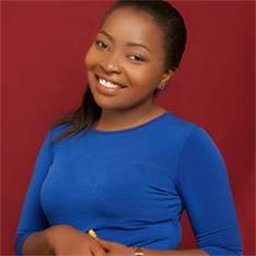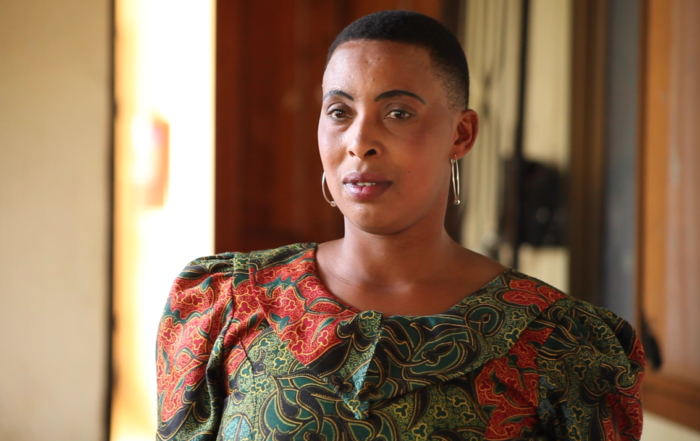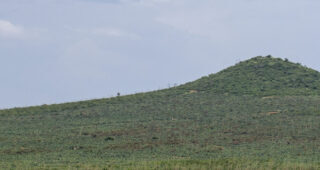“To My Surprise, I Was Found to Be Free of Cervical Cancer”
Tumaini Kahaya is a community health worker and a self-proclaimed cervical cancer ambassador—devoted to raising awareness in her community, especially among women who are afraid to be tested. Inspired by her community work, Nuru Ngailo—the Communications, Advocacy and Partnership Advisor for EGPAF in Tanzania—sat down with Tumaini to hear her story.

Tell me about your life and what’s important to you?
I am a mother of two of the most beautiful children and a wife to an amazing husband. My work as a community health worker is most important to me as I feel that am giving back to my community after having been a beneficiary of the cervical cancer program implemented by the USAID Boresha Afya Project.
Tell me about your journey with cervical cancer.
After being informed about cervical cancer screenings, I made an appointment with the nurse at Meru District Hospital to get screening for cervical cancer. Although I did not have any signs, I just thought it would be good to check my health. Skilled healthcare workers attended to me really well at the facility. After being screened, the nurse approached me and informed me that I had a large lesion, and that she was referring me to KCMC [Kilimanjaro Christian Medical Centre].
I was shocked! The nurse calmed me down and explained to me that having such a lesion does not mean I have cancer, but it is an indication that I might get it in the future. Since I had taken the initiative to screen for cervical cancer early, the nurse explained that I could beat the disease. This calmed me, and I agreed to go to KCMC.
When I got home, I told my family about my results and they comforted me and gave me full support. Other relatives were afraid for my sake and thought this was the end of my life. When I went to KCMC the next day I underwent a loop electrosurgical excision procedure, a procedure to remove abnormal tissue from the cervix [This is done to confirm a cancer diagnosis or treat precancerous conditions of the cervix].
A month later the results came and to my surprise I was found to be cervical-cancer-free.
Ever since, I have been educating my fellow women in my community on cervical cancer. My role as a community health worker makes it even easier for me to reach out through household visits.

What was your experience at the clinic?
My experience at this facility is magnificent. Being a community health worker and a beneficiary of the services that the facility provides, this hospital holds a special place in my heart. The healthcare workers are very skilled. They are committed, and this makes the facility patient-friendly.
My message to all women is that they should make it a priority to get screened for cervical cancer. Tumaini Kahaya
Who were the people who supported you along the way?
I was mostly supported by the doctors and nurses at this health facility—and I cannot forget my family as well. I owe these people my life.
What is your message to your fellow women?
My message to all women is that they should make it a priority to get screened for cervical cancer—because initially it doesn’t show any signs. When it’s detected early, it can be treated, but when it has progressed and is detected late, it becomes more difficult and expensive to treat.
Tanzania has one of the highest incidence rates of cervical cancer, with 59 incidents per 1000 clients and a mortality rate of 42.7 per 1000 clients. The USAID Boresha Afya North/Central Project, in partnership with the government of Tanzania, is adopting most-effective, -efficient and -affordable services for cervical cancer screening and treatment for precancerous lesions (as recommended by the World Health Organization).
Team EGPAF
Tanzania
Community Mobilization; Maternal & Child Health



